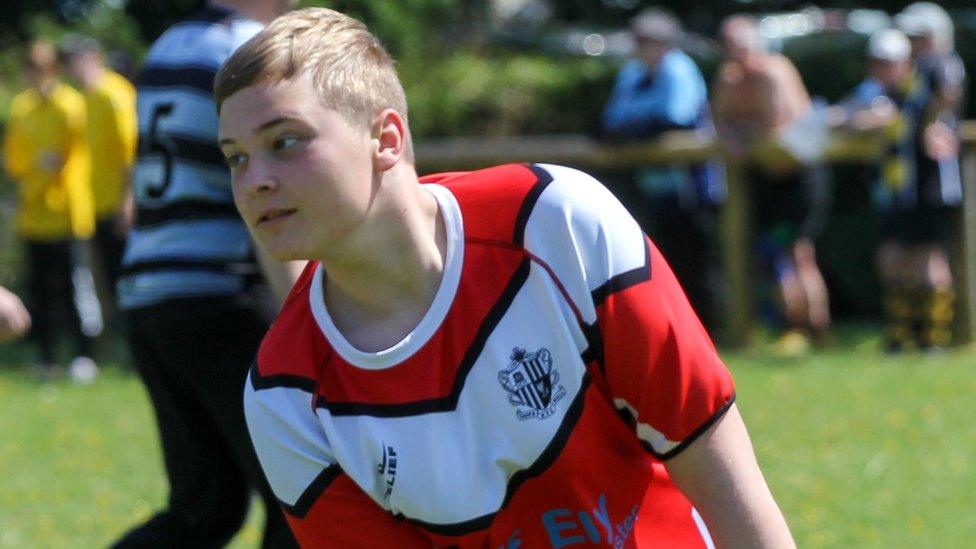Welsh teenagers exercising less and using screens more, survey finds
- Published
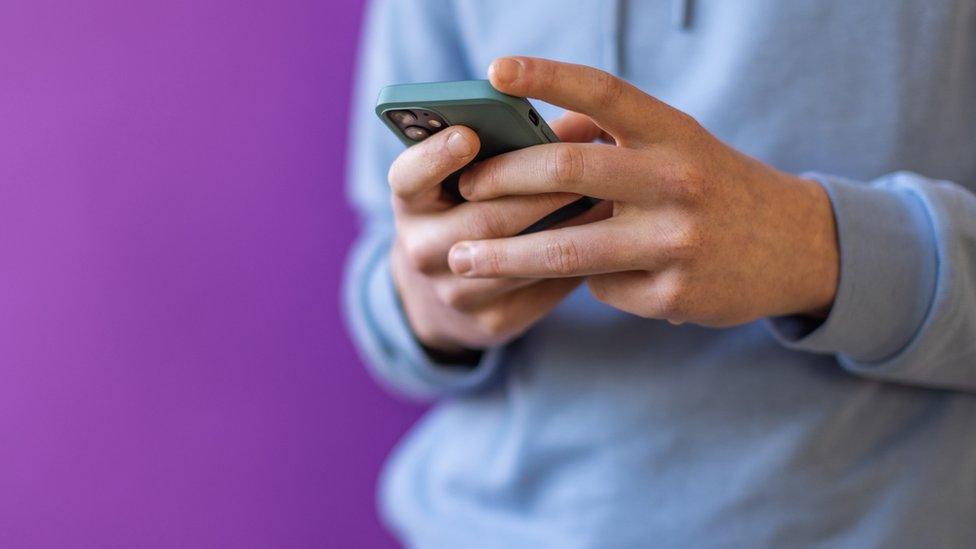
More young people are looking at screens late at night, according to a national survey
Teenagers in Wales are exercising less and spending more time in front of screens, according to the findings of a national survey.
It found only 16% of young people met the recommended exercise guidelines of 60 minutes each day.
More than 123,000 secondary school pupils participated in the School Health Research Network survey in 2021, when Covid restrictions were in place.
Public Health Wales said the rise in screen use was "really significant".
The survey asked pupils between the ages of 11 and 16 about aspects of their physical and mental health and social relationships, and found almost a quarter of children said they had experienced high levels of mental health symptoms.
Life satisfaction among young people was also found to have gradually declined between 2017 and 2021.
Teenagers living in Monmouthshire reported the highest levels of life satisfaction, while those living in Merthyr Tydfil reported the lowest.
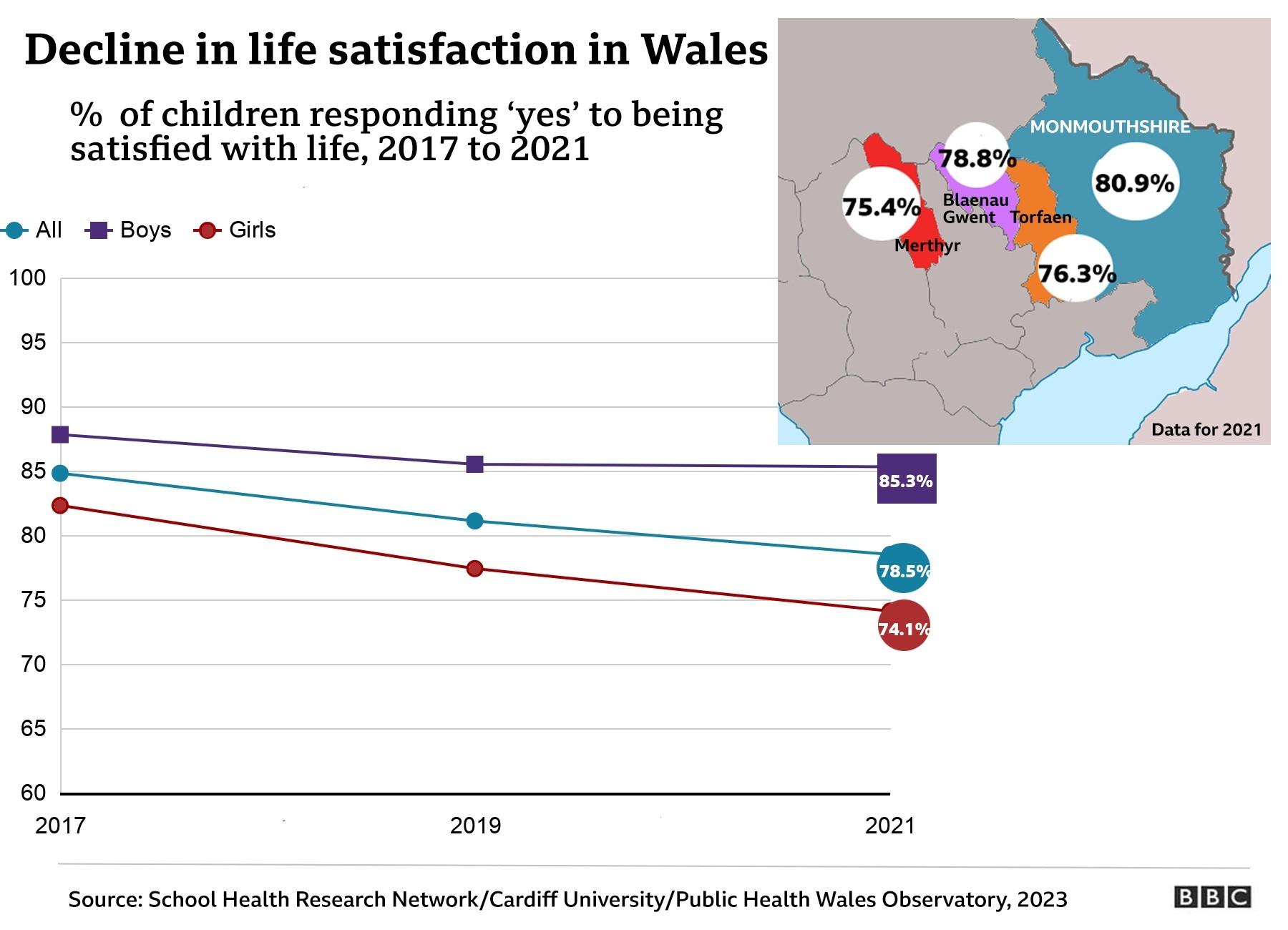
The Welsh government has launched a pilot scheme focused on improving the mental health and wellbeing of pupils following the pandemic.
King Henry VIII secondary school in Abergavenny, Monmouthshire, which is part of the scheme, has selected pupils to become mental health ambassadors to help encourage better wellbeing in their peers.
One of the ambassadors, Lucy, 15, said: "I try to take time to read before I go to sleep instead of being on my phone late at night. I also try to eat healthy because I see me being more happy when I feel better."
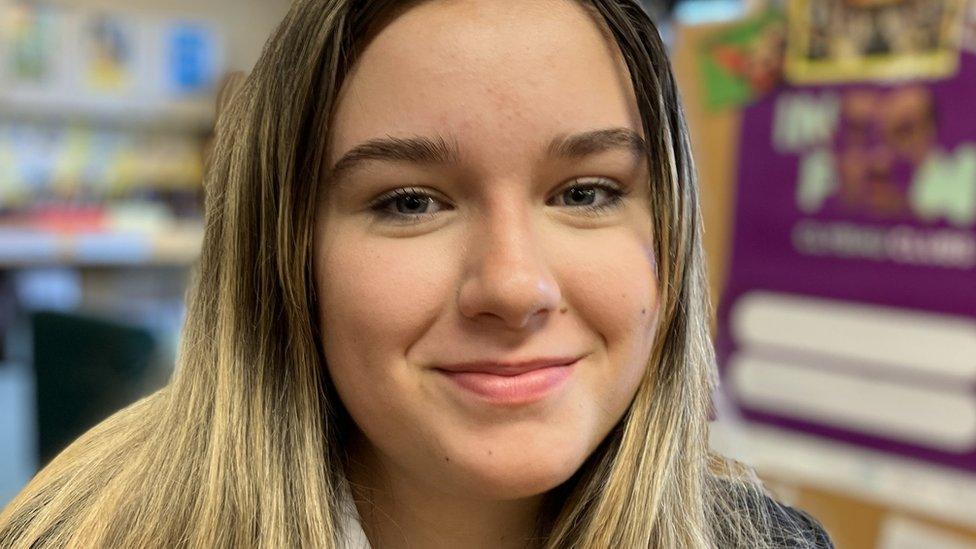
Lucy said she tries to read before going to bed rather than using her phone
Another, Spike, 14, said: "Spending too much time on my phone impacts me but I also find that it doesn't have to be on screens. I feel impacted even if I'm not doing anything so even if it's just sitting around not having a task to do."
And Seren, 16, said: "I like to go to bed early and I like to walk the dogs just to get a bit of fresh air if I've had a stressful day, especially being in year 11 with exams coming up."
Assistant head Jake Parkinson said education and pastoral care were "inextricably linked".
"You need to make sure students are able to feel safe and secure and belong in school and feel happy to be able to be academically successful," Mr Parkinson said.
Other survey findings included fewer 11 to 16 year olds doing regular rigorous exercise outside of school, compared to those who responded in 2017 and 2019.
There was an average increase of almost 10% in the number of young people who said they went to bed later than 23:30 on a school night, while 7% more said they were looking at screens after 23:30.
But there was a drop in the number of teenagers who said they drank alcohol. Fewer also reported smoking or vaping.
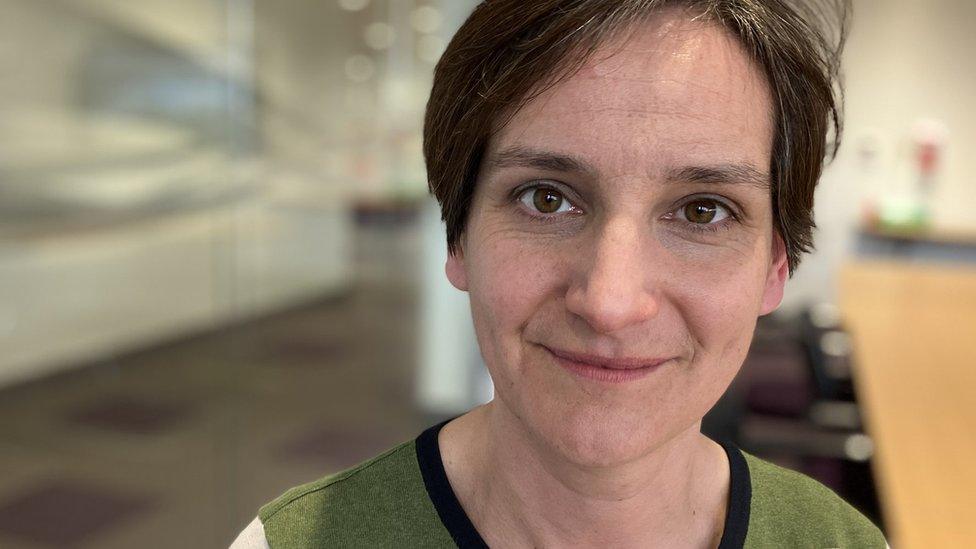
Emily van der Venter from Public Health Wales said screen use before bed makes it harder to sleep
The survey is carried out every two years by Cardiff University and Public Health Wales.
Dr Nick Page, from Cardiff University, said schools who participated in the survey could assess how any actions they have put in place may have led to changes in pupil wellbeing.
"For example, we know schools who have used their data to make changes in terms of vending machines in the school and what types of food and drinks that are available," he said.
Emily van der Venter from Public Health Wales said: "We've seen a really significant increase in the proportion of young people saying they're using screens before going to bed. We know that sleep is really important for our mental health and our wellbeing."
She added: "Again, we know that physical health and mental health are very much intertwined so we certainly need to do things to improve young people's levels of physical activity and that will improve people's wider health and wellbeing as well."
Related topics
- Published20 April 2022

- Published12 August 2020

- Published27 November 2022
